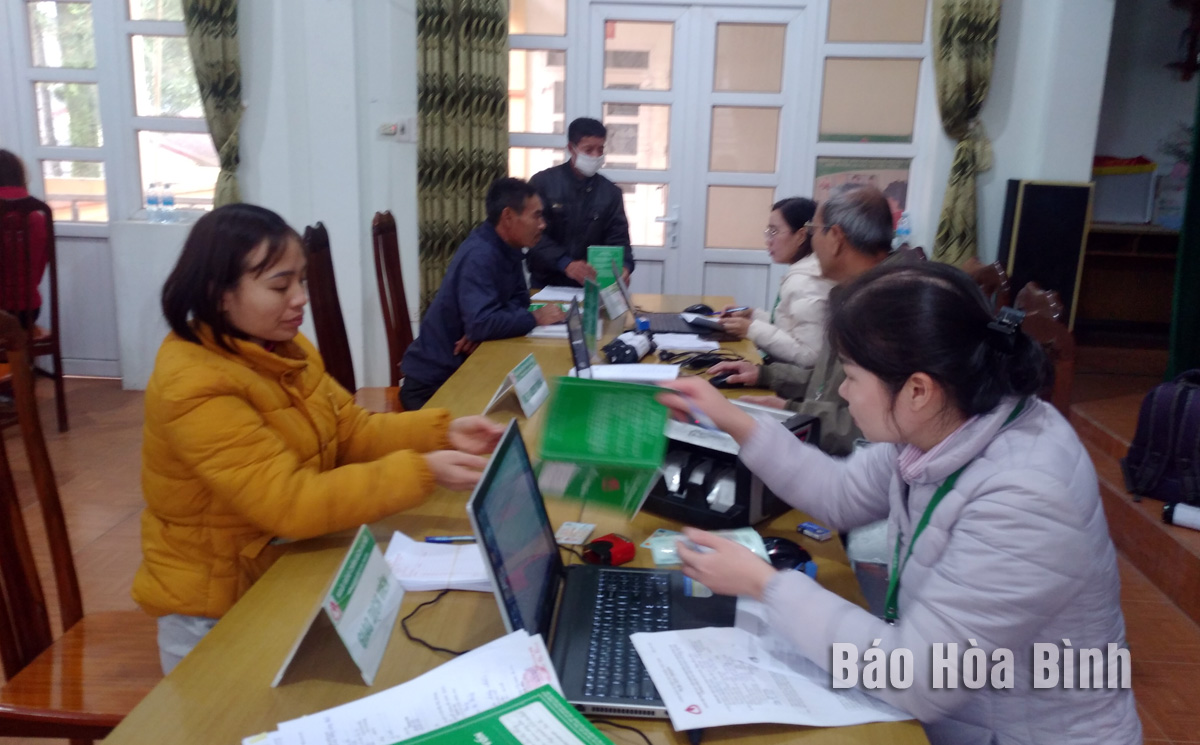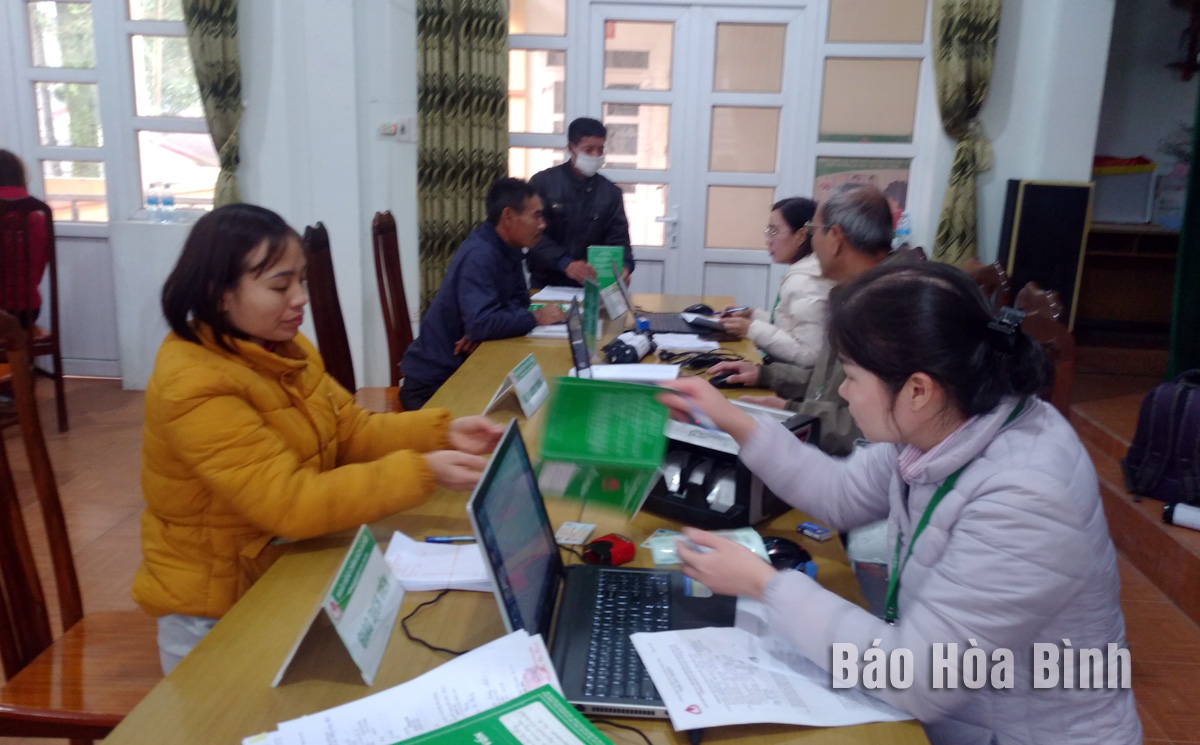
In recent years, commune transaction points of the Bank for Social Policies in Kim Boi district have been considered "mobile banks” for the poor, creating favourable conditions for people to access preferential credit policies from the Government right in their area of residence.

Staffs of Kim Boi district branch of
the Bank for Social Policies disburse capital at Dong Bac commune’s transaction
point.
It has become a custom that on the 17th day
of every month, savings and loan groups, poor people and policy beneficiaries
in Dong Bac commune gather at the office of the commune People's Committee to
pay interest and deposit savings to the bank. There, information related to
credit activities is publicly and clearly posted. Pham Hung Hanh, head of Ranh
hamlet's loan group, shared that preferential loans are disbursed at commune
transaction points, with simple and convenient procedures, thus helping save
travel time and costs. People are also informed of loan amounts, interest
rates, procedures, as well as new guidelines and policies of the State without
having to go to the district centre.
With the operating method of
"transaction at home, disbursement in the commune", the transaction
points have proved effective. To serve customers, the bank has established
transaction teams in communes, fully equipped with the operating conditions of
a bank to serve transaction sessions. At these points, preferential credit
policies and programmes of the state, bank procedures, lists of borrowers, debt
balance, repayment period for each borrower, transaction rules are also
publicised.
Thanks to mobile transaction sessions, poor
people and policy beneficiaries in remote areas can borrow capital to develop
production, gradually getting rid of poverty.
Nguyen Viet Phuong, Deputy Director of Kim
Boi district branch of the Bank for Social Policies, said that the district has
17 fixed transaction points located at the offices of 17 communes and Bo town.
Currently, the bank provides loans for 15
policy credit programmes with total outstanding loans of over 557 billion VND
(22.88 million USD) of over 15,300 customers. The bad debt rate accounts for
0.01% of the total outstanding loans.
In the coming time, the bank will continue
to improve the quality of operations at commune transaction points, helping
people borrow money in the fastest and most effective way; and proactively and
effectively integrate customers' loan activities with agricultural extension
programmes so that borrowers can use capital effectively, get rid of poverty
sustainably, and contribute to promoting economic development and poverty
reduction.
According to data from the Hoa Binh Provincial Party Committee, the industrial production index for the first six months of 2025 is estimated to have increased by 20% compared to the same period last year. This marks the highest year-on-year growth rate for this period since 2020.
In the first six months of 2025, Hoa Binh province’s export turnover was estimated at 1.145 billion USD, marking an 18.11% increase compared to the same period in 2024. Import turnover was estimated at $ 804 million, a 17.15% increase, which helped the province maintain a positive trade balance.
The lives of the ethnic minority farmers in Tan Lac district have gradually improved thanks to the new directions in agricultural production. This is a testament to the collective strength fostered through the professional associations and groups implemented by various levels of the district’s Farmers’ Union.
With the motto the "product quality comes first,” after nearly one year of establishment and operation, Muong village’s Clean Food Agricultural and Commercial Cooperative, located in Cau Hamlet, Hung Son Commune (Kim Boi district), has launched reputable, high-quality agricultural products to the market that are well-received by consumers. The products such as Muong village’s pork sausage, salt-cured chicken, and salt-cured pork hocks have gradually carved out a place in the market and they are on the path to obtaining the OCOP certification.
In the past, the phrase "bumper harvest, rock-bottom prices" was a familiar refrain for Vietnamese farmers engaged in fragmented, small-scale agriculture. But today, a new spirit is emerging across rural areas of Hoa Binh province - one of collaboration, organisation, and collective economic models that provide a stable foundation for production.
Maintaining growing area codes and packing facility codes in accordance with regulations is a mandatory requirement for agricultural products to be eligible for export. Recently, the Department of Agriculture and Environment of Hoa Binh province has intensified technical supervision of designated farming areas and packing facilities to safeguard the "green passport" that enables its products to access international markets.



